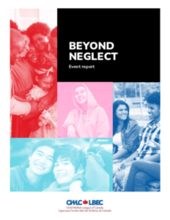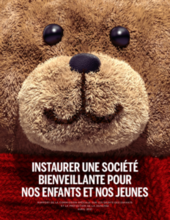Displaying 71 - 80 of 345
A systematic review was conducted to examine the effectiveness of interventions and practice models for improving health and psychosocial outcomes of young people in residential care and to identify relevant knowledge gaps.
In April 2021, the Child Welfare League of Canada (CWLC), in partnership with the Children’s Aid Foundation of Canada, led a series of cross-sectoral convenings with the goal of introducing a positive obligation for government and service providers to assist families who are experiencing difficulties in a context of poverty. This three-day event convened people across sectors to gain a better understanding of how the child welfare system responds to the conditions that place families at an increased risk of child protection involvement due to assessments of ‘neglect’. The goal of Beyond Neglect is to develop and champion evidence-based legislative frameworks that could help service providers and governments to better meet the needs of children, youth and their families.
Après deux années de travail intense, la Commission spéciale sur les droits des enfants et la protection de la jeunesse (CSDEPJ) présente publiquement avec beaucoup de fébrilité son rapport final.
This study uses longitudinal administrative data to assess the decision to transfer a family to ongoing child welfare services within twelve months of an initial investigation.
"Advocates for youth in government care are calling on the provinces and territories to continue supporting those who are aging out of the child welfare system and trying to make it on their own during the pandemic," says this article by the Canadian Press.
This study describes the challenges faced by a child protection agency and community organization who partnered to reduce the overrepresentation of Black children reported to the child protection agency through implementation of a parenting support program.
This article exploresthe extent to which general strain theory (GST) and self-control theory can explain the mental health outcomes of youth in-care.
This article from the Conversation puts a spotlight on the situation of young people aging out of the child welfare system in Ontario, Canada during the COVID-19 pandemic.
A proposed class-action suit was filed on Monday in British Columbia Supreme Court, alleging that "a Catholic order shuffled known abusers from a notorious Newfoundland orphanage to two schools in the Vancouver area where more boys were victimized," according to this article from CBC News.
"A disturbing trend has led to a plea from doctors across [Canada] as more babies and children are being treated with serious trauma, fractures and in some cases, malnutrition," says this article from Global News.


